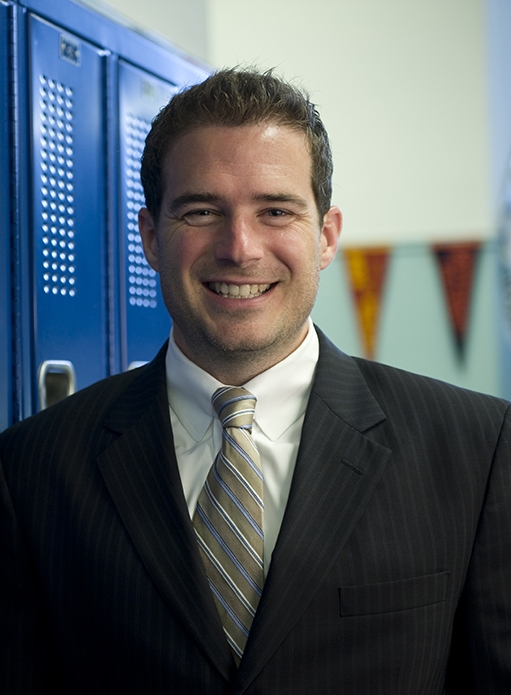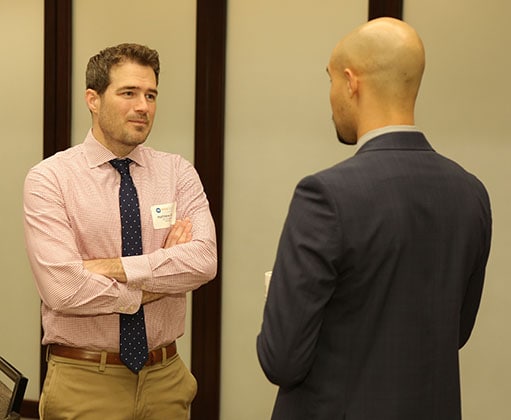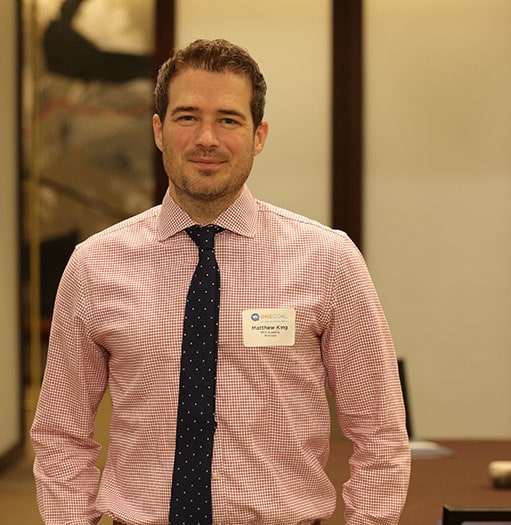In celebration of OneGoal’s 10-year anniversary, we sought to collect reflections from some of the numerous individuals who have helped build the organization. Matthew King co-founded OneGoal, serving as a founding Program Director and going on to join the Chicago Regional Advisory Board. Here he reflects on how far OneGoal has come.

OneGoal: You were OneGoal’s first Program Director — what specific memories defined that first year of teaching?
Matthew King: It was my second year as a teacher, so in general, I was feeling completely overwhelmed. I was still learning to be a teacher at the same time as trying to create a solution for an incredibly complex challenge, which is the college degree divide. I remember every step was hard, whether figuring out the process for identifying best-fit colleges or guiding students through FAFSA, and there were no easy answers.
Often times making many mistakes led to breakthroughs. In one instance, I made the assumption that because a student was accepted to college meant that they were going. Then one day a student with a great opportunity announced to the class that they were not going to college. I ended up having a long talk with the student, parent, and then drove the student that same day to enroll because the enrollment deadline was the next day.
Overall, the best way to describe the first year of OneGoal was us building the plane as we flew it and our fuel was the belief that all of our kids were capable of achieving and graduating.
OG: What about the idea of OneGoal do you think got funders and school communities to take a chance on it?
MK: Simple. Many of us went to college and it resulted in life-altering experiences that allowed us to access and benefit from so many opportunities. Why wouldn’t we all want every kid to have that same outcome?
OG: Do you feel like the OneGoal promise, as young and undefined as it was at the time, was kept for your cohort?
MK: We did keep the promise that we set out for, although at that point it was “to college” not “through college” as it is now. I wish we would have started with graduation and career success. We could have been so much further along if I would have seen it that way at the time. That’s what happens when you’re a learning organization. These last 10 years have redefined what our aspirations for students should and need to be and I’ve watched OneGoal evolve the promise we make in supporting Fellows’ postsecondary ambitions to better equip them on their path to success.
I’d love for my first cohort to have been part of today’s OneGoal.
OG: How do you feel about how far OneGoal’s come and where it’s heading?
MK: I am most proud of the collection of amazing staff that include our post-college Fellows. The pace of innovation and creative problem-solving is also amazing.
OG: In your opinion, what set OneGoal apart then and what sets it apart now?
MK: The ambition and the belief that it’s not enough for a student to enroll in college. We believe our kids are capable of thriving in the college environment and exit with degree in hand, being more competitive and skilled than their peers, regardless of the resource gap and regardless of whether or not a school or test score labeled a student as “top” or “ready.” This belief in needing to support every single student is still a Grand Canyon-sized difference between OneGoal and other interventions.


OG: What do you believe that people new to OneGoal should understand about its history and embrace about its future?
MK: It’s most important to embrace the continued opportunities to ante-up to the next challenge of increasing the college graduation rate of our Fellows. While it might seem overwhelming, and we may be comfortable where we stand due to our existing success, we must remember it’s not about how we feel about ourselves. It is about changing how our society functions and unfairly picks winners.
We work so that today’s norms — whether the constant threats to shrink/eliminate federal need-based financial aid or the fact that overwhelming data still shows a nearly three-times college graduation rate for students from upper-class versus students from lower-class backgrounds when both groups are high achievers — aren’t tomorrow’s norms. Achievement along the way should be celebrated, but only as a checkpoint up the mountain towards ensuring all Fellows graduate college able to successfully enter the world with a competitive job while simultaneously making sure more students have the opportunity to do so.


